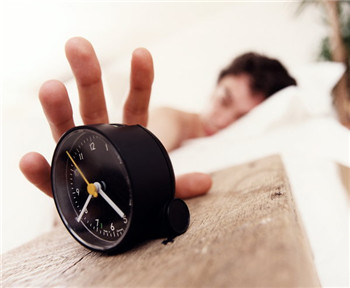(单词翻译:单击)

Sleeping later on weekends may be bad for you.
在周末时睡得晚,可能对你的身体不好。
Several studies have shown that there is an association between shift work and an increased risk for heart disease and diabetes. Now a new study, in The Journal of Clinical Endocrinology & Metabolism, has found a similar association in people whose sleeping schedules change on the weekend.
已有多项研究显示,倒班工作与心脏病、糖尿病风险提高有关。现在刊登于《临床内分泌代谢期刊》(The Journal of Clinical Endocrinology & Metabolism)上的一篇研究发现,会在周末改变睡眠时间的人,也跟这些疾病存在类似关系。
For seven days, 447 men and women ages 30 to 54 wore devices that measured movement and tracked when they fell asleep and woke.
该研究选择了447位年龄介于30到54岁之间的男女,让他们连续7天佩戴身体运动计量设备,跟踪记录入睡和醒来的时间。
Almost 85 percent of the group went to sleep and woke later on their days off than during the workweek. The researchers found that the greater the mismatch in sleep timing between weekdays and weekends, the higher the metabolic risk. Sleeping late on days off was linked to lower HDL (good) cholesterol, higher triglycerides, higher insulin resistance and higher body mass index. The associations persisted after controlling for physical activity, caloric intake, alcohol use and other factors.
跟工作日相比,近85%的人在休假时睡得晚、起得也晚。研究人员发现,周间与周末的睡眠时间改变越大,代谢性疾病的风险也越高。在休假时晚睡,可能会导致(有益的)HDL胆固醇变少,三酸甘油酯变高,胰岛素抗性增加,身体质量指数也升高。在控制运动量、卡路里摄取量及饮酒等其他因素之后,关联性持续存在。
“It’s not clear yet that this is a long-term effect,” said the lead author, Patricia M. Wong, a graduate student at the University of Pittsburgh. “But we think of this as people having to sleep and work out of sync with their internal clock, and that having to be out of sync may be having these health effects.”
“目前尚不清楚是否为长期效应,”该研究的第一作者、匹兹堡大学研究生派翠西亚·M·王(Patricia M. Wong)表示:“但我们认为,这些人必须在与生物钟不同步的情况下睡眠、工作,这种被迫的不同步可能影响了健康。”


